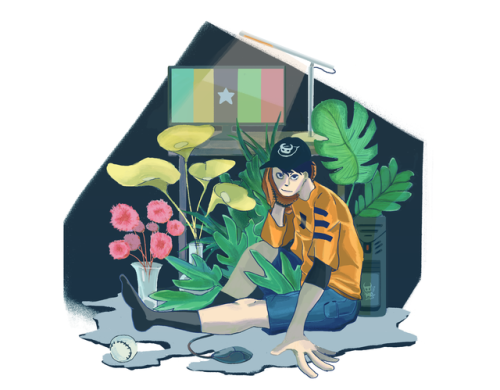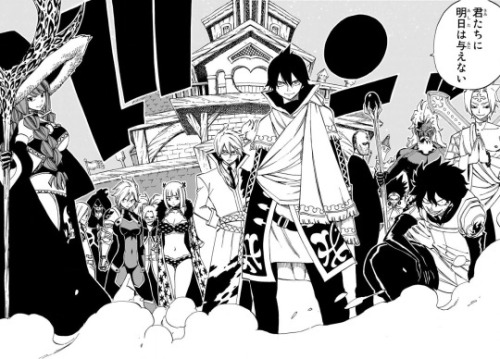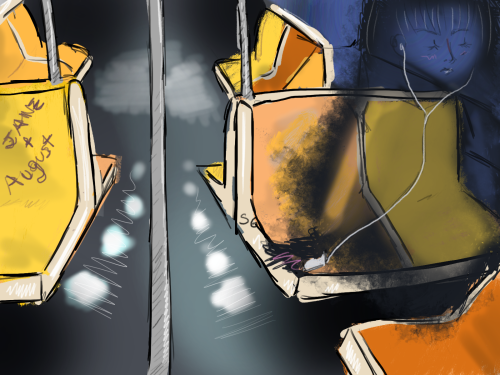#august
if ur lgbt: what’s ur fav season & ur birth month????
Il magnifico regalo di Tim: apre il mausoleo di Augusto
Buone notizie riguardo il Mausoleo di Augusto a Roma ️

VOCI DI ROMA
LA ROMA AUGUSTEA
“Realizzò numerosi monumenti pubblici. Tra questi ecco i principali: un foro con un tempio di Marte Vendicatore, un tempio di Apollo sul Palatino, un altro di Giove Tonante sul Campidoglio. Costruì un Foro perchè, data l'affluenza della folla e il numero dei processi, i due esistenti non erano più sufficienti e sembra ci fosse bisogno di un terzo; per questo ci si affrettò ad inaugurarlo, senza che fosse terminato il tempio di Marte e si stabilì che in esso fossero tenuti specialmente i processi pubblici e si facesse l'estrazione a sorte dei giudici.
Quanto al tempio di Marte aveva fatto voto di innalzarlo quando, con la battaglia di Filippi, si era vendicato dell'uccisione di Cesare; così stabilì che il Senato deliberasse in questo tempio tutto quanto si riferiva alle guerre e ai trionfi, che di qui partissero tutti coloro che si recevano nelle province con incarichi di comando e che quanti tornavano vincitori qui portassero le insegne dei loro trionfi.
Fece erigere il tempio di Apollo in quella parte della sua casa sul Palatino che, colpita dal fulmine, il dio aveva preteso per sè a mezzo degli aruspici; vi aggiunse un porticato con una biblioteca latina e greca, e qui, già vecchio ormai, riunì spesso il Senato e passò in rivista le decurie dei giudici”.
✍️Svetonio, Vite dei Cesari, Vita di Augusto, 29 (a cura di S. Lanciotti), Rizzoli, Milano 1982.
(Nell'immagine: ricostruzione grafica del Foro di Augusto)

ACCADDE OGGI
Il 12 aprile del 238 d.C. morirono Gordiano II, sul campo di battaglia e suo padre Gordiano I, suicidatosi dopo aver appreso della morte del figlio.
Padre e figlio divennero imperatori per volere dei grandi proprietari terrieri, dei soldati ausiliari e dei cittadini della provincia d'Africa, di cui Gordiano I era proconsole, subito dopo che il Senato dichiarò Massimino il Trace hostis publicus. Il padre si associò immediatamente il figlio, mentre il nipote venne nominato Cesare (il futuro imperatore Gordiano III dal 238 al 244 d.C.) e iniziò ad attuare un programma di risanamento delle finanze di Roma, cercando di ingraziarsi il popolo e i soldati e ricevendo l'appoggio di quasi tutte le province romane.
Nonostante l'appoggio ottenuto in tutto l'Impero e anche dal popolo, il loro regno durò poco meno di un mese, poiché Capeliano, il governatore di Numidia (o meglio, legatus Augusti pro praetore), era un deciso oppositore di Gordiano I per due ragioni: ebbe una disputa legale con lui (Erodiano, VII, 9, 2) ed era sostenitore di Massimino.
L'unico scontro decisivo fu la battaglia di Cartagine, combattuta tra una legione di tutto rispetto quale era la III Augusta e reparti ausiliari e cittadini raccogliticci: “Capeliano era alla testa di una poderosa armata di giovani vigorosi e ben armati, oltre che addestrati alla guerra nelle lotte sostenute contro i barbari […] i Cartaginesi erano superiori di numero, ma erano anche una turba indisciplinata e con poco addestramento militare. A peggiorare la situazione mancavano armi ed equipaggiamento adeguati” (Erodiano, VII, 9, 6).
“[…] sbaragliati dalla cavalleria numida, i pochi superstiti gettarono a terra le armi fuggendo verso la città. Molti vennero calpestati nella confusione che seguì, incalzati fin sotto le mura e trucidati davanti alle loro famiglie. Furono così tanti i morti che il corpo di Gordiano non fu ritrovato. Quando Gordiano I seppe che Capeliano era entrato in città, l'anziano imperatore si suicidò, mentre il vincitore mise a morte tutti i loro sostenitori confiscandone i beni” (Erodiano, VII, 9, 4-10).
(In foto sesterzio di Gordiano I, sul dritto: IMP(ERATOR) CAES(AR) M(ARCUS) ANT(ONIUS) GORDIANUS AFR(CANUS) AUG(USTUS) e busto laureato di Gordiano verso destra; sul rovescio: VICTORIA AUGUSTORUM e la vittoria drappeggiata con una corona nella mano destra e una palma nella sinistra. Questa moneta riporta quindi il cognomen Africanus, adottato dalla presa del potere e al rovescio AVGG, indicando quindi il regno dei due Augusti).
(I passi di Erodiano sono tratti dalla sua Storia dell'Impero Romano dopo Marco Aurelio, VII, 9, 2-10 (a cura di Filippo Cassola), Einaudi, Torino 2017).
New Tiger panty! #lingerie #tiger #lastsummerdays #august #lingeriedesign #underwear #panty #red #sunshine #morning #shadows #embroidery #etsy #animals #bigcat #nature #handmade
https://www.instagram.com/p/B1qGC6VhtmG/?igshid=1agudkumto1s4
Post link
August is every girl/person who had a crush on Percy Jackson’s anthem. Like I immediately thought of Miss Rachel Elizabeth Dare but it can apply to some of the others like Calypso too. Like the thought that they all I knew it would always be Annabeth in the end so he was never theirs to lose. Also the whole summer relationship reminded me of Rachel and Percy beach day together and of his time on Calypso’s island.
fromReckless Chants #25, August 2019
I love the country highways at dusk & dawn. I love the backroads on August afternoons, the rolling hills, the moldering cemeteries next to rushing rivers. I love the old folk songs stuck in my head, the scratch & pop of my own personal field recordings. I love the tallgrass prairie, what’s left of it, the little protected patches of big bluestem & needle grass, bee-balm & spiderwort. I love the small towns & the faded signs, the Twi-Lite Motel. I love the blue highways at twilight when the whole world turns liminal, & o, I love it when the rain comes on.
Post link
Playlist | August | Play time: 41:57
1. Perfectly out of place: Dreams we’ve had
2. When the end comes: Andrew Belle
3. Easier: Mansionair
4. Speak Easy: Mansionair
5. Violet City: Mansionair
6. Killing me to love you: Vancouver Sleep Clinic
7. Affection: Between Friends
8. Wide-eyed: Cold Weather Company
9. Thoughts: Sasha Sloan
10. Don’t you cry for me: Cobi
So, today I’m going to talk about “but”.“But” is a pretty important word in any language. It can change an agreement into an argument, a rule into a suggestion, and a good day into a bad day. That said, it’s pretty important to learn.
Once again, there are a few of this word you should know in Japanese. We’ll talk about the three most common buts–でも、しかし、and のに,–as well as the often used for but, “が”.
Let’s go over が first. が is interesting that it can be translated as ‘but’, because it also translates to 'and’. For example:
私はチョコレットが好きですが、ロリポップが好きじゃない。
Unfortunately, in English either 'but’ or 'and’ would still have this sentence make sense:
I like chocolate and I don’t like lollipops.
I like chocolate, but I don’t like lollipops.
Because of this, using が is tricky because some teachers may teach it as but, others as and, and in more meaning specific sentences it may be a problem. I feel the best way to to treat が is like a semicolon. It links two relating sentences together, so you can link as many as you want as long as they relate:
よく海に行くが、林はちょっと。。。
ラーメンが食べたいがうどんもたべたい!
部屋は黒いですが。。。寒いです。
It’s used in sentences in this way, so I can see some of the first Japanese-English translators being unsure if it was 'but’ or 'and’. Rather it’s “;”. I think that’s the best way to see it.
(If you’re unsure on how to use a ; in the English language, The Oatmeal has a pretty good explanation.が is pretty much that aside from the 'super comma’ meaning.)
Now, moving on!
でも
でも is probably the next common 'but’ learned. It actually has another main usage but that’ll be another time. Anyways, でも is practically used for but the way it’s used in English:
彼は寒そうだでも、私は部屋が暑いだと思います。
He looks cold, but I think the room is hot.
甘いものが食べたいでも、ダイエッをしてみます。。。
I like to eat sweet things, but I’m trying to go on a diet…
「明日、早く起きてください」
「でも、土曜日です!」
“Please wake up early tomorrow.”
“But it’s Saturday!”
And that’s it. Not so complicated, right?
しかし
Unlike でも and が, しかし has no alternative meanings. It strictly means 'but’, so it is unlikely to ever get the meaning of the sentence wrong from that.
彼が彼女がいた。しかし、他の女性がすきそうだ。。。
He has a girlfriend. However, I heard he likes another woman…
痛いだ、しかしがんばって!
It hurts, but I’ll keep going!
I don’t think I need anymore examples for this. It’s also worth noting that in general しかし can be replaced by でも, but not all でもs are しかしs. (Like all squares are rectangles but not all rectangles are squares)
のに
のに is actually a very specific type of 'but’. It’s used when “A” happens, but then “B” happens unexpectedly. It’s always used when “B” is negative. For example:
二時間待ったのに、彼がきませんでした。
Although I waited two hours, he didn’t come…
勉強するのに、私のせいせきが。。。
My grades aren’t that good although I study.
Like with ので, the 'result’ or how the situation is goes first, and then what happened to make you feel otherwise. If there are any nouns or な adjectives before hand, a な MUST be in between:
プレセントなのに、好きではありません。
Although it was a present, I don’t like it.
女性がきれいなのに、怒りっぽいです。
She’s beautiful, but she has a really short temper.
So that’s all for but! As always feel free to Ask me anything Japanese-related. I’ll be happy to answer!










